The Audi R10 TDI: the trailblazing diesel racer that changed perceptions
Audi's R10 TDI, the first purpose-built diesel racer, won the Le Mans 24 Hours for three consecutive years, inspiring alternative technology in racing.
Getty Images
Car to remember
Audi R10 TDI
When an electric vehicle wins the Le Mans 24 Hours, or a prototype powered by a hydrogen fuel cell manages the feat, its inspiration will be traceable to a racing machine we now consider almost conventional. Audi’s R10 TDI was anything but when this turbodiesel arrived in 2006, starting of a three-year winning streak.
The R10 wasn’t the first diesel-powered Le Mans racer: there had been so-called ‘oil-burners’ straight after World War II and a small British privateer team had brought the fuel back to Le Mans in 2004. But the Audi was the first purpose-designed diesel racer with, most pertinently, the first bespoke diesel racing engine. The Audi changed attitudes, both inside and outside the sport. It showed what could be possible with what was still called an alternative technology in the world of racing and it showed the outside world, most pertinently in the USA, that diesel engines could be sporty, even sexy.
The R10 was a winner from the outset: it was one of a line of Audis, stretching from the R8 to the original R18, to notch up a debut victory in the Sebring 12 Hours. It wasn’t an easy car to drive initially, thanks to the weight of the V12 turbodiesel and its massive torque. But once long-time Audi tyre supplier Michelin had honed its rubber for the car in time for Le Mans, it was a dream.
“It was a tricky car to tame,” says Emanuele Pirro, who scored two of his five Le Mans victories with the R10 together with Frank Biela and Marco Werner. “Even if the car looks big and bulky today, it was a big step forwards on the R8; it had to be because it was designed six years later.
“In the beginning, we didn’t know how to handle the weight and the torque, but it became agile and even user-friendly. It was a car you could really push on street circuits in the American Le Mans Series and rain was the ultimate test. I was really worried when it was wet in qualifying in 2006, but it was still enjoyable to drive.”
The R10 is important for reasons other than its technology. It is often forgotten that the car was unbeaten at Le Mans in the hands of the Joest team. It won first time out in 2006, beat the new Peugeot turbodiesels one year later and then, in its dotage, scored arguably Audi’s greatest victory. Audi’s ageing contender wasn’t a match for the Peugeot 908 in 2008, but Joest, Allan McNish, Tom Kristensen and Rinaldo Capello ran the perfect race to snatch a final victory for this trend-setting design.
Stars of the decade
Frank Biela
After winning the German, French and British touring car titles for Audi, Biela was drafted into the LMP team. He reeled off three Le Mans wins early in the decade and retired with five total.
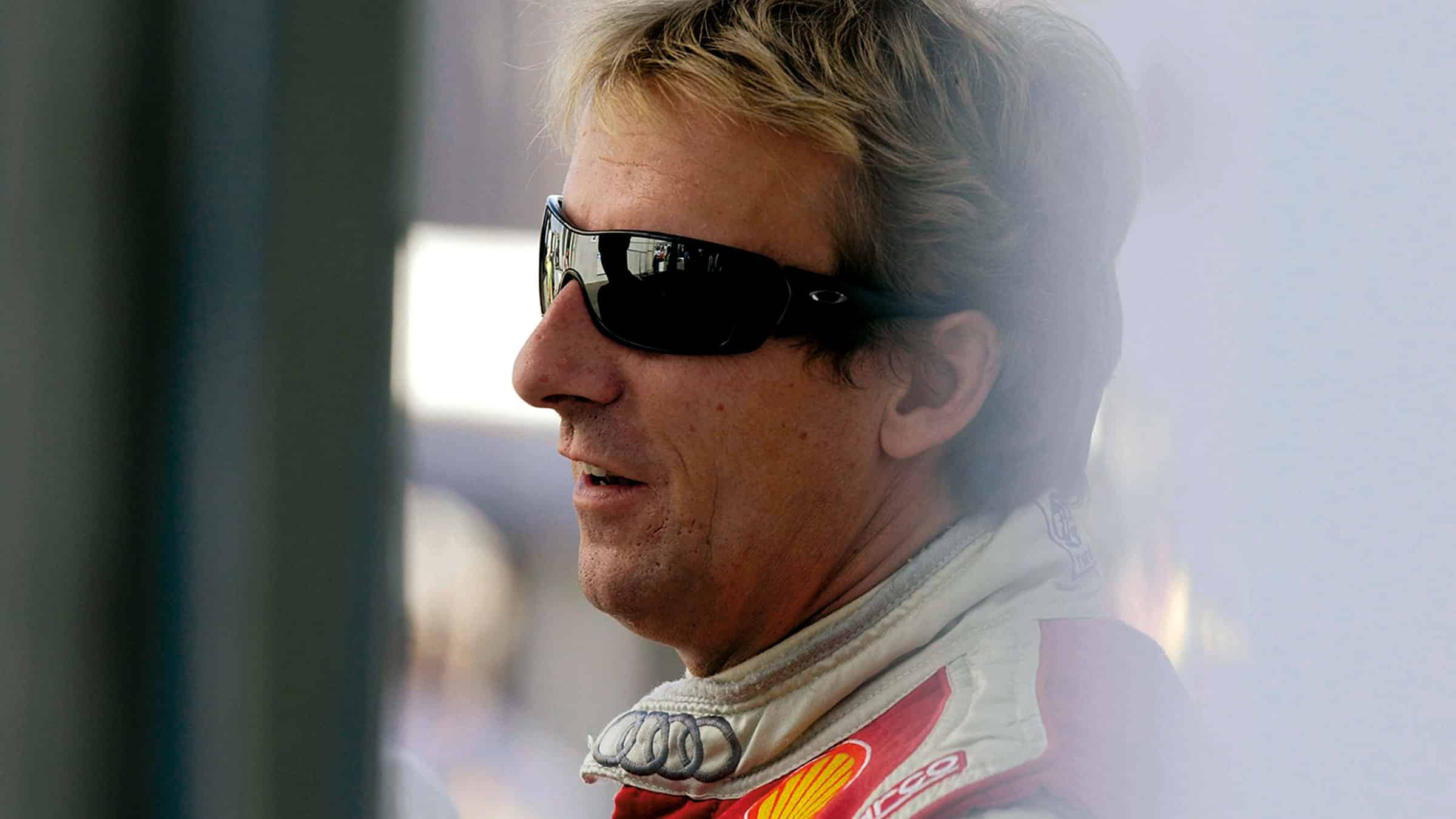
Emanuele Pirro
Another of Ingolstadt’s touring car aces who came good in prototypes, the Italian partnered Biela at Le Mans, the pair making eight starts together. They took all five of their victories together.
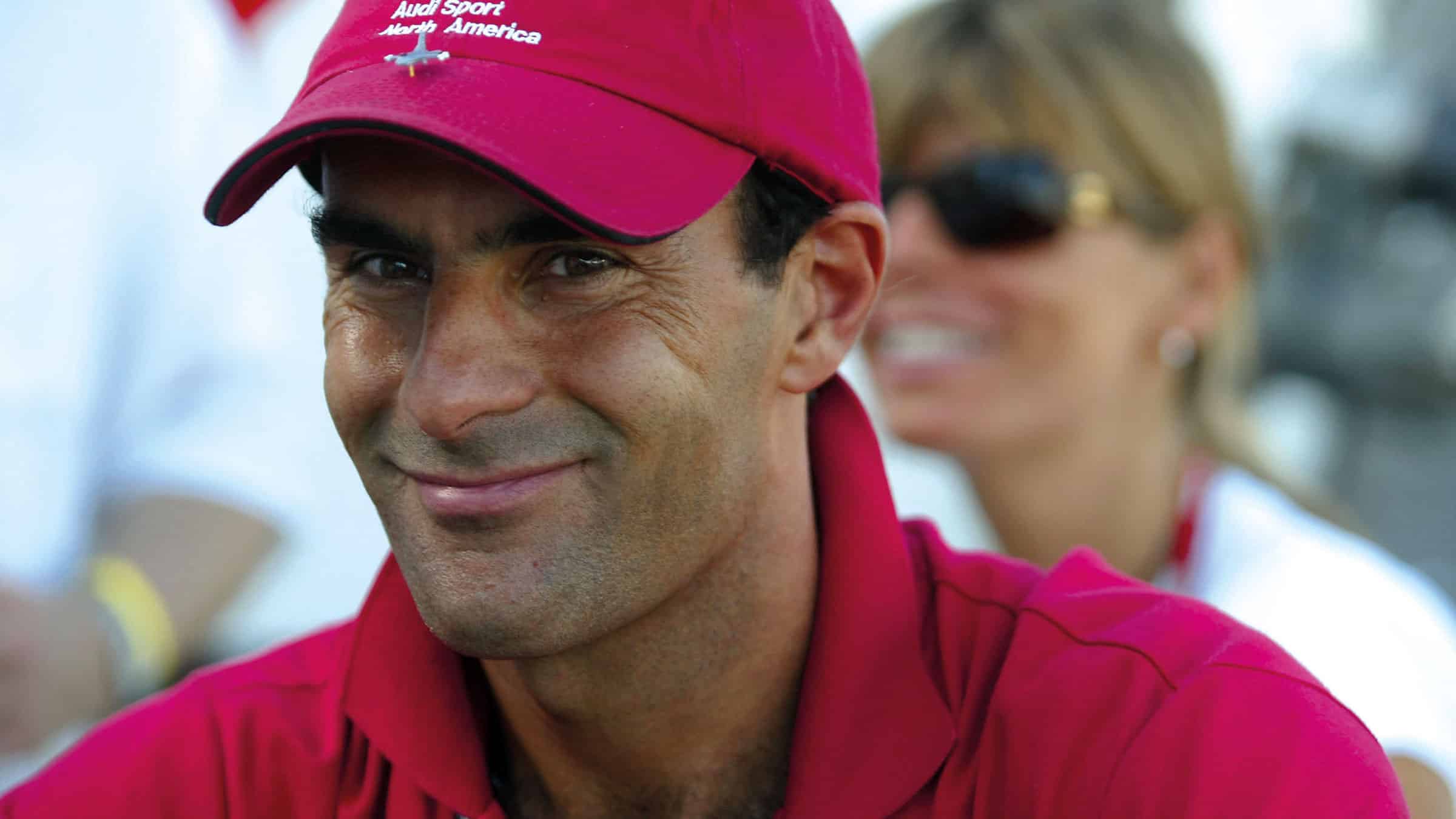
Tom Kristensen
The most successful endurance driver ever. Nine victories at Le Mans, including a first with Porsche in 1997 and six in a row from 2000-05 (one with Bentley), will be a tough record to beat.
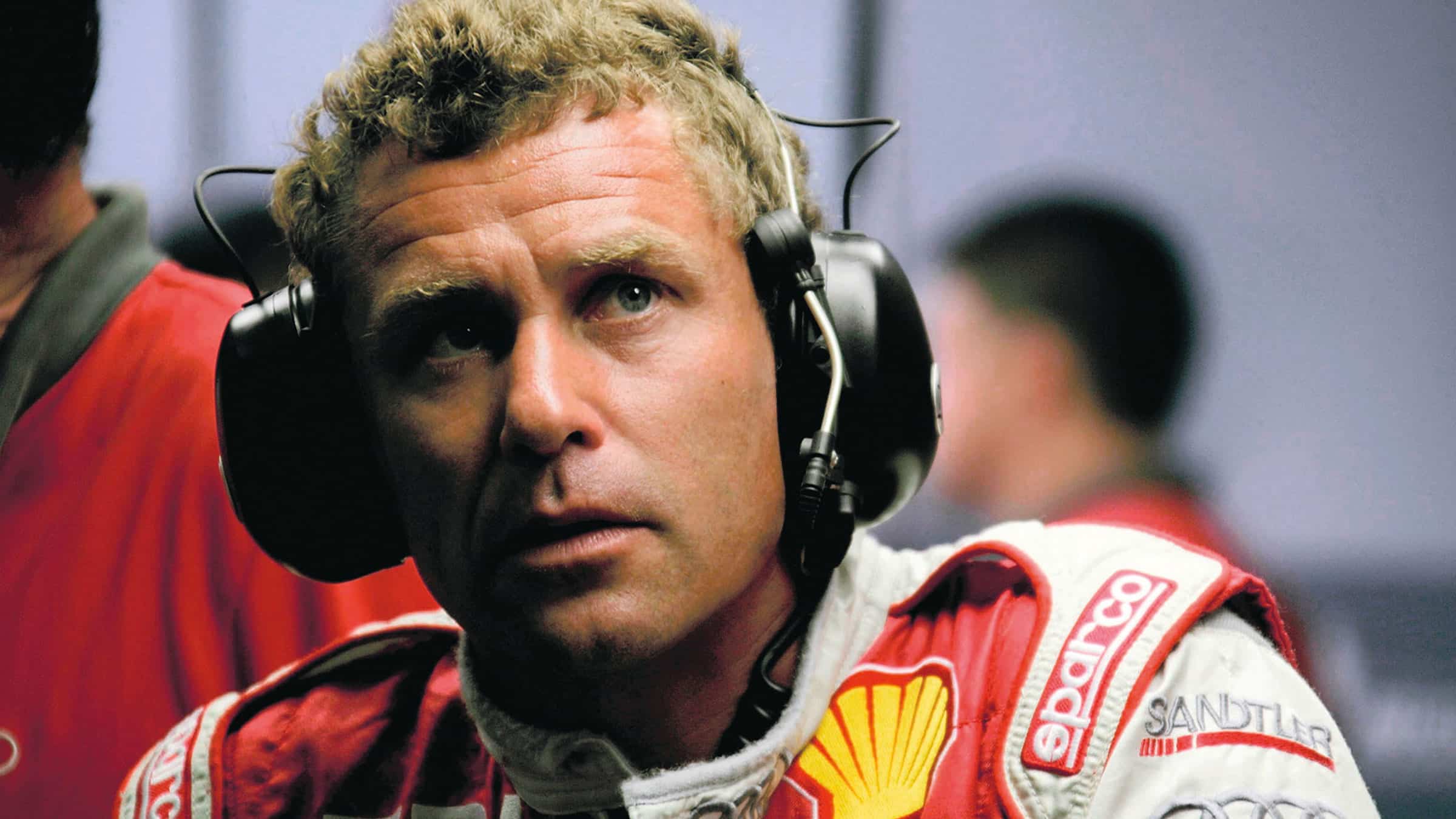
Oliver Gavin
Gavin was a GT stalwart from 2001, finishing on the class podium eight times, including five wins in Corvettes. He retired after 2019 having made 18 consecutive starts with the American brand.
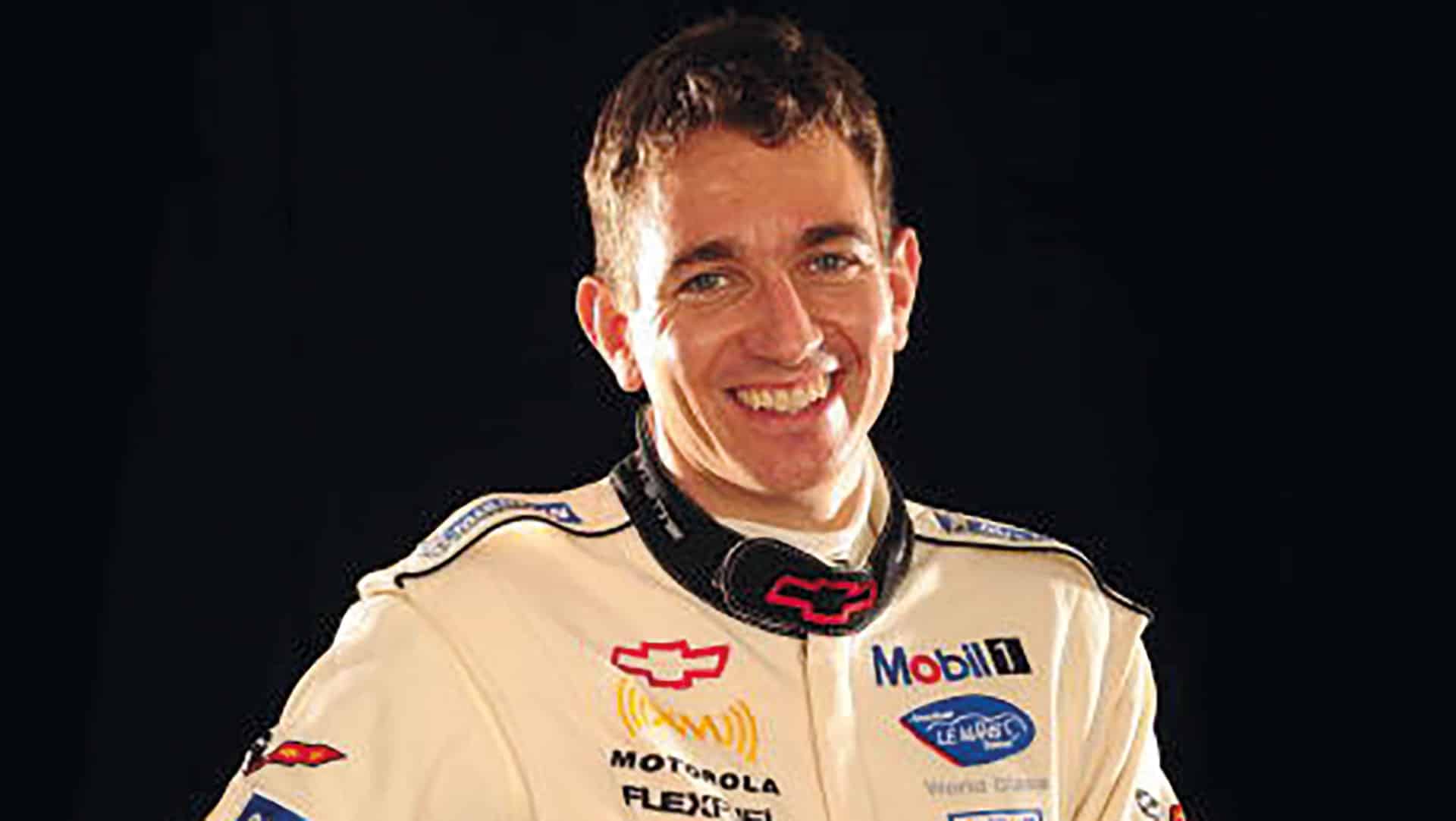
The winners
2000
Audi R8
Frank Biela/Tom Kristensen/Emanuele Pirro
5008km
2001
Audi R8
Frank Biela/Tom Kristensen/Emanuele Pirro
4367km
2002
Audi R8
Frank Biela/Tom Kristensen/Emanuele Pirro
5119km
2003
Bentley Speed 8
Rinaldo Capello/Guy Smith/Tom Kristensen
5146km
Audi withdraws its works cars, opening the door for its sister
2004
Audi R8
Seiji Ara/Rinaldo Capello/Tom Kristensen
5170km
2005
Audi R8
Tom Kristensen/JJ Lehto/Marco Werner
5051km
Audi’s R8 enters the record books with a fifth Le Mans win, the most of any single model of car
2006
Audi R10 TDI
Frank Biela/Marco Werner/Emanuele Pirro
5187km
Audi shocks the world by taking the first outright win for a diesel
2007
Audi R10 TDI
Marco Werner/Emanuele Pirro/Frank Biela
5029km
2008
Audi R10 TDI
Allan McNish/Rinaldo Capello/Tom Kristensen
5193km
2009
Peugeot 908 HDi FAP
David Brabham/Marc Gené/Alexander Wurz
5206km
Gallery
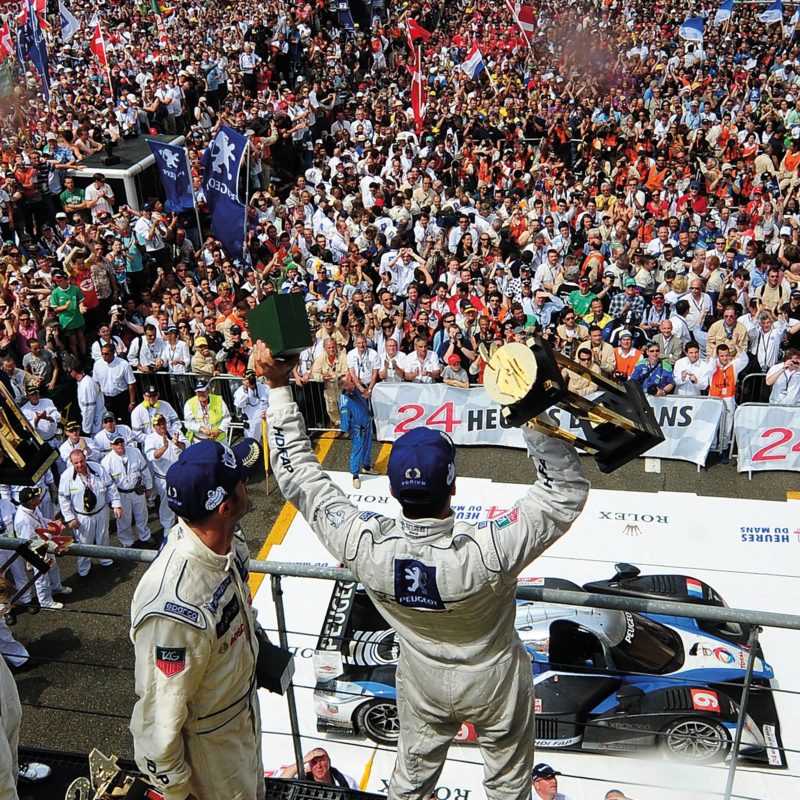
The adoration of a home crowd: after years of Audi dominance, Peugeot celebrated its all-time LMP1 high in 2009 when the 908 HDI FAP finally beat its German rivals. Marc Gené and David Brabham savour the moment from the podium
Getty Images
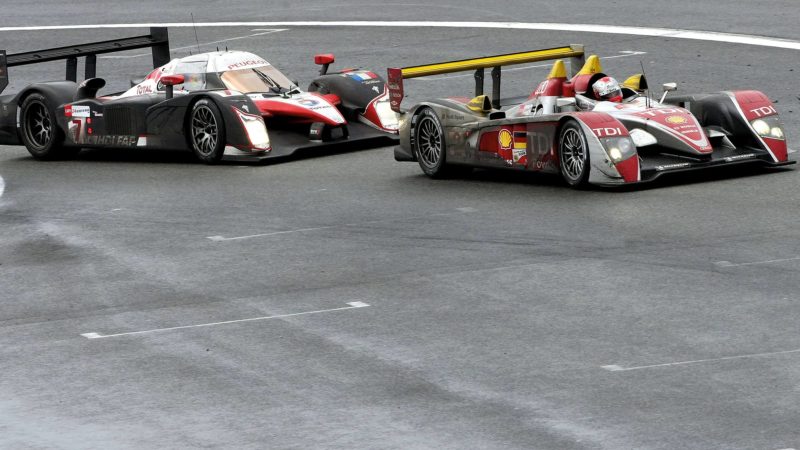
The arrival of Peugeot Sport from 2007 sparked Le Mans’ ‘diesel wars’ as both brands fought it out with the alternative fuel. Audi held firm in 2008, as Capello’s R10 TDI leads Jacques Villeneuve in the Puegeot 908
Getty Images
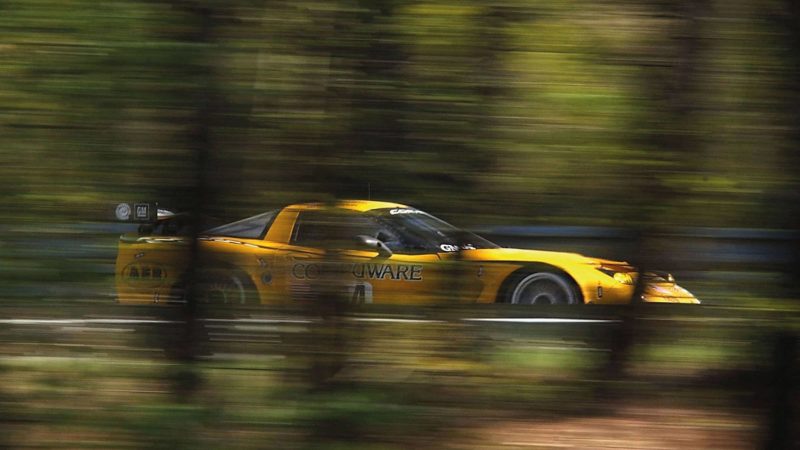
Since the turn of the decade, Corvette had been a constant at Le Mans with its ever-evolving run of GT1 cars. It held an unbroken 20-year appearance record until Covid hit and kept the Americans away in 2020. Oliver Gavin drove for 18 of those races in the 2000s
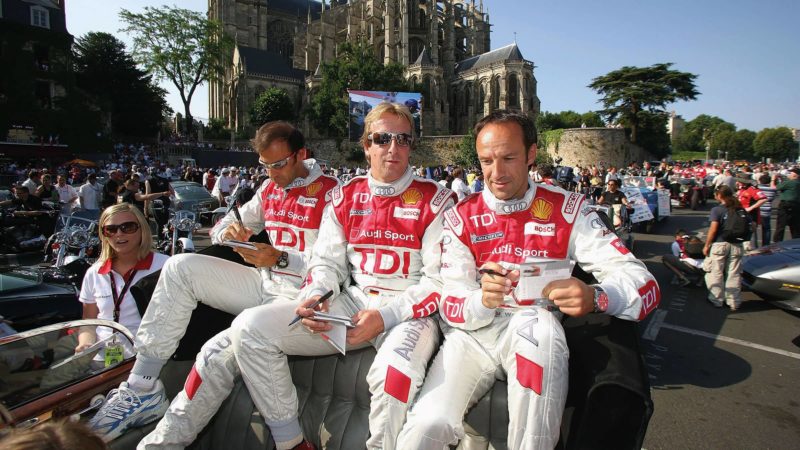
Audi drivers (L-R) Emanuele Pirro, Frank Biela and Marco Werner would win twice as a trio. Here they take in the 2006 drivers’ parade
Getty Images
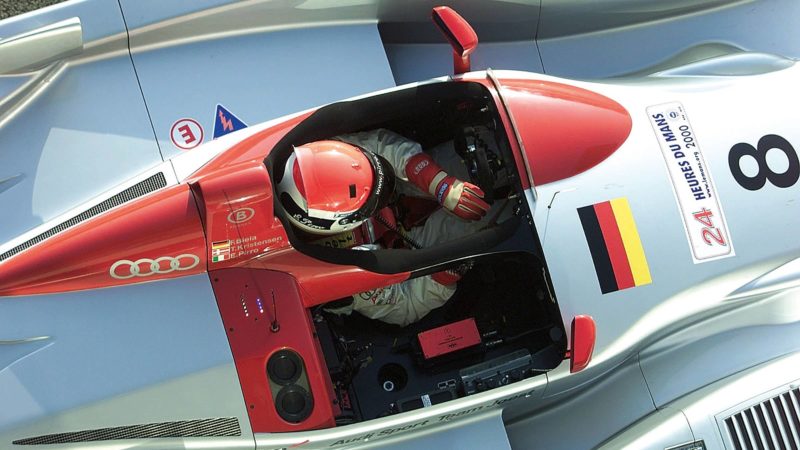
Emanuele Pirro at the wheel of his Audi R8 in 2000. The R8s would sweep the board and win the race five times in total
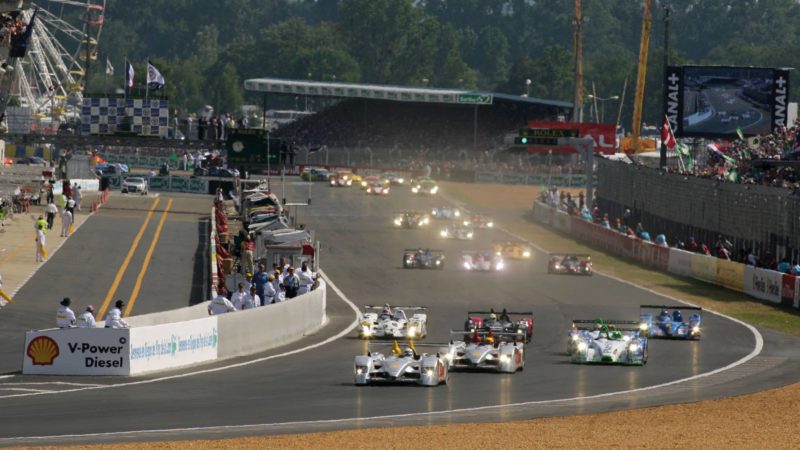
The start of the 2006 race, the first to feature proper front-running diesel power. McNish leads Biela as the Pescarolos and Courages languish in their wake
Getty Images
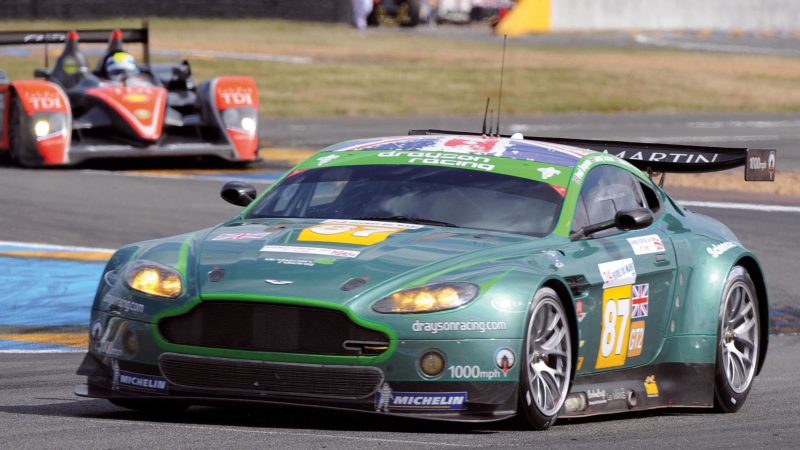
Lord Paul Drayson (British secretary of trade and innovation) broke into GT racing during this period. Here is his biofuelled Aston Martin during the 2009 race. He championed many alternative fuels, such as ethanol, electric and self-charging hybrid
Getty Images
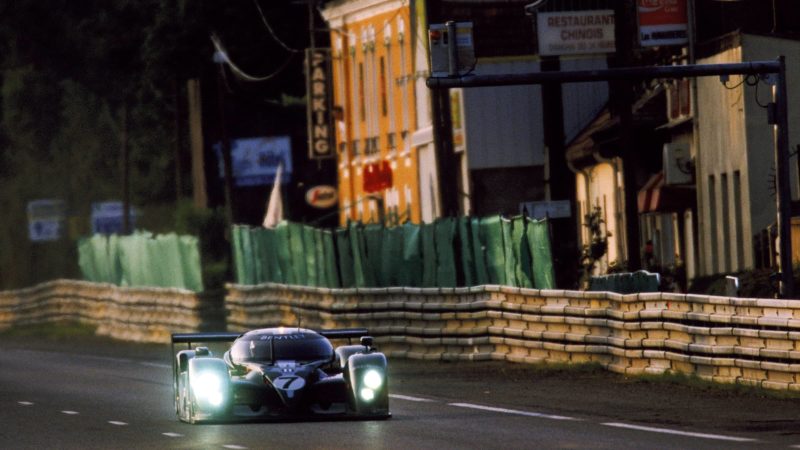
Audi took a break from winning in 2003, allowing sister brand Bentley a shot at glory with its Speed 8. Kristensen, Guy Smith and Capello did the business in the third year of the LMP1 programme. Bentley promptly quit afterwards
Getty Images